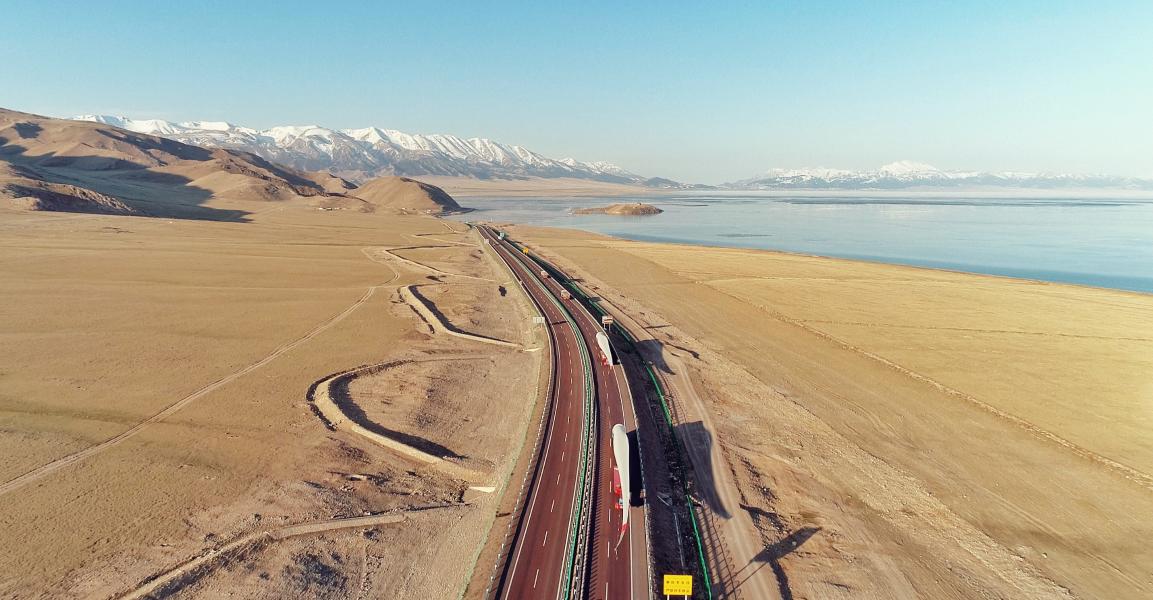New blueprint paves way for stability, development in China's Xinjiang
The third central symposium on work related to Xinjiang was held on Friday and Saturday in Beijing, vowing law-based governance and long-term efforts to develop Xinjiang into a region that is united, harmonious, prosperous, and culturally advanced, with healthy ecosystems and people living and working in contentment.
Leo Yang, 35, describes his first long trip to northwest China's Xinjiang Uygur Autonomous Region as "breathtakingly impressive."
"The scenery is beautiful and diverse with snow mountains, grasslands and deserts, as well as convenient transport and accommodation facilities," says Yang, a consulting professional. "Most importantly, it's a safe and hospitable place." He recently took a 15-day excursion driving through the region.
Xinjiang is expected to impress visitors like Yang further, as the region is set to embrace more progress on various fronts after a key meeting outlined a new blueprint for Xinjiang's development.
The third central symposium on work related to Xinjiang was held on Friday and Saturday in Beijing, vowing law-based governance and long-term efforts to develop Xinjiang into a region that is united, harmonious, prosperous, and culturally advanced, with healthy ecosystems and people living and working in contentment.

Residents have fun in the ancient city of Kashgar, northwest China's Xinjiang Uygur Autonomous Region, Sept. 20, 2020. [Photo/Xinhua]
Solid foundation
Thanks to strenuous efforts from all sides since the second symposium in 2014, major progress has been achieved in Xinjiang, laying a solid foundation for the region's long-term peace and stability.
From 2014 to 2019, a sound economic momentum was sustained with an average annual GDP growth rate of 7.2 percent. Living standards of the local people have significantly improved with an average yearly growth of 9.1 percent in residential per capita disposable income, and more than 2.92 million out of the 3.09 million registered as impoverished people shook off poverty.
Besides, the total number of people employed in Xinjiang rose from 11.35 million to 13.3 million in the period, according to a white paper on employment and labor rights in the region released by the State Council Information Office on Sept. 17.
Xinjiang has created 50,000 jobs in its eastern and northern regions so far this year specifically for people from the remaining 10 poverty-stricken counties in the southern part of the region.

Trucks loaded with wind turbine blades run on a road through the Sayram Lake basin in northwest China's Xinjiang Uygur Autonomous Region on April 24, 2020. [Photo/Xinhua]
As of 2019, the total length of Xinjiang's road network had reached 194,200 km, with an annual extension of 4,000 km since 2014. The region has also opened 111 international transportation routes with neighboring countries including Kazakhstan and Uzbekistan.
The autonomous region has cemented its position as a safe and stable place with no terrorist attacks reported in more than three years, thanks to concerted efforts from all sections of the society.
"Life is getting increasingly better in my hometown, with more convenient access to education, electricity, tap water, internet and employment," said Rukeyamu Metisadi, a resident from Yutian County, Hotan Prefecture in southern Xinjiang.
Bright future
The meeting called for holding high the banner of the socialist rule of law to maintain lasting social stability in Xinjiang, and reinforcing a sense of identity of the Chinese nation to strengthen ethnic unity. It also emphasized leveraging the region's geographical advantages to develop Xinjiang as a core area of the Silk Road Economic Belt and a hub of opening-up in inland and border areas, advancing industrial transformation and upgrading, and comprehensively boosting urbanization while protecting the environment.
"We will keep up with our hard work to build a moderately prosperous society in all respects and revitalize rural areas to create better lives for locals," said Wang Qingyong, head of the anti-poverty office in southern Xinjiang's Aketao County.
Entrepreneurship is booming among young people in the region. By running an e-commerce company in Turpan that simply sells fruits, Ubaidulla Umar became a millionaire in less than four years.
After graduating from Xinjiang Vocation and Technical College of Construction in 2015, Ubaidulla Umar worked for an e-commerce enterprise in central China's Changsha. Two years later, he returned to Turpan to start his own business, and established Albay E-commerce Co., Ltd., to seize the development opportunities in the region.
His company has six live-streamers, four of whom are college graduates. It sells fruits such as apricots, cantaloupes and grapes via e-commerce platforms. So far in 2020, the turnover of the company has reached more than 8 million yuan (1.17 million U.S. dollars).
Under the country's efforts in pooling talent and resources from other provincial regions to support Xinjiang's development, east China's economic hub Jiangsu has rolled out 248 projects with a total investment nearing 2 billion yuan (about 293.2 million U.S. dollars) this year and introduced over 280 projects in the region, said Zhu Bin, chief director of Jiangsu's support team in Ili Kazakh Autonomous Prefecture.
"We will roll up our sleeves to make these projects bear fruits in Xinjiang and make contributions to the bright prospects of the region," Zhu said.

